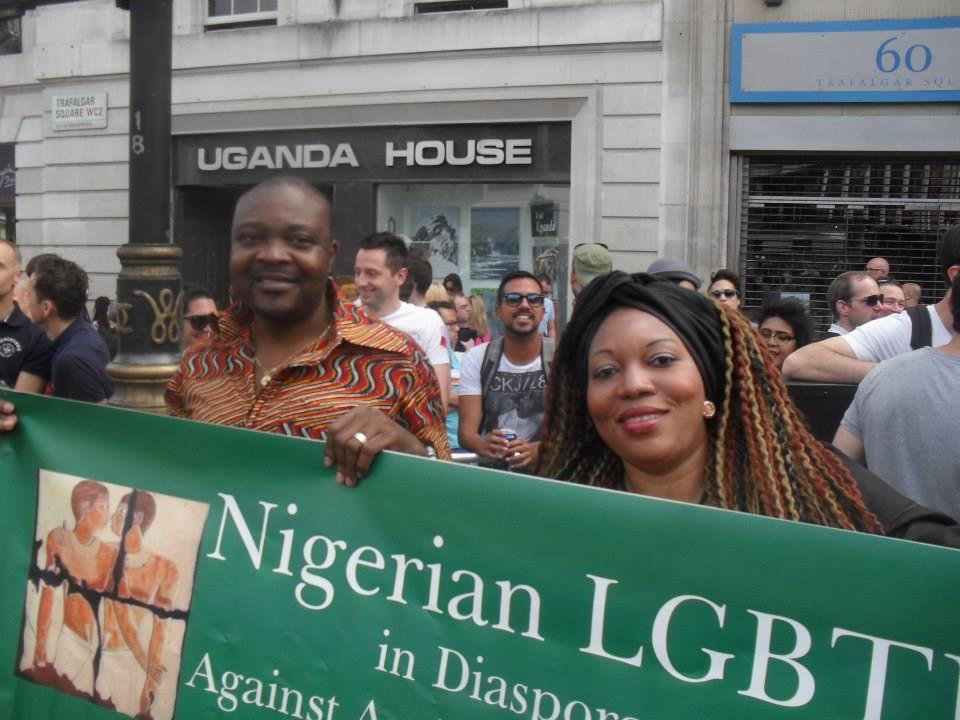It just got even tougher to be gay in Nigeria
Nigerian gay rights activist Davis Mac-Iyalla (left) holding a banner at London’s 2013 Pride Parade protesting anti gay rights laws. On January 7th, Nigerian President Goodluck Jonathan signed the Same Sex Marriage Prohibition Act, which criminalizes gay marriage, gay organizations and anyone working with or promoting them.
It happened January 7, but Nigerians didn't hear about it until a week later. President Goodluck Jonathan signed the Same Sex Marriage Prohibition Act into law.
Critics call it the 'Jail the Gays' bill. It criminalizes not only gay marriage, but gay organizations and anyone working with or promoting gay rights. Homosexuality is already illegal in Nigeria.
"The already existing law was inherited from Britain, our colonial masters, and it was hard to prove," says Nigerian LGBT activist Davis Mac-Iyalla. "But the law that has just been passed kind of criminalizes everybody and makes everybody illegal."
Mac-Iyalla lives in London. He sought political asylum there in 2008 after being fired from his job as principal of an elementary school in Nigeria.
"Once the issue of my sexuality became public, the education people didn’t want me," he explains. He started receiving death threats, and was physically attacked, but had no legal recourse. "That’s why this bill, which has been passed into law, is so worrisome; because LGBT people can be fired from work without any right to challenge it. I didn’t have anywhere to take my case to."
Mac-Iyalla says the idea for a more draconian anti-gay bill was first introduced in Nigeria's parliament in 2006 and received support from Nigeria's religious communities.
"The Anglican Church of Nigeria, along with certain conservative Christian groups in America, forcefully supported the bill, along with Islamic leaders in northern Nigeria," he says. President Jonathan hasn't publicly stated his views on homosexuality, but he's defended signing the bill, saying it's what NIgerians want. "That's a big mistake," Mac-Iyalla says. "What Nigerians want is good roads, electricity, a good education — not an anti-gay law."
Under the language of the new law, people who provide services for LGBT people, especially in the area of HIV/AIDS treatment and counseling, are at risk of arrest. "I can tell you that as we speak, that LGBT people in Nigeria are being witch-hunted. Some homophobic people are taking the law into their hands."
Before this new law, Mac-Illay says, Nigerians couldn't act on their prejudices and fears. "Now those fears and prejudices have been made legitimate."
The United States, Britain and Canada have condemned the new law. On Monday, Secretary of State John Kerry said the measure "dangerously restricts freedom'' of expression and association of all Nigerians. A similar bill in Uganda passed in December.
Every day, reporters and producers at The World are hard at work bringing you human-centered news from across the globe. But we can’t do it without you. We need your support to ensure we can continue this work for another year.
Make a gift today, and you’ll help us unlock a matching gift of $67,000!
